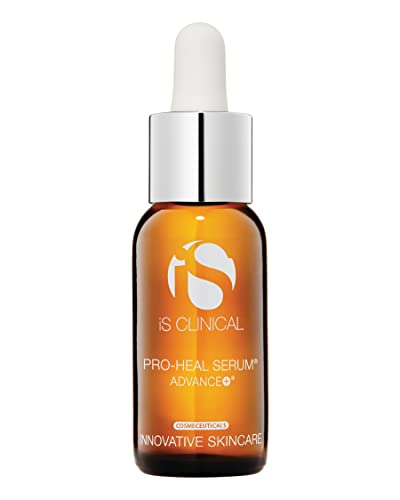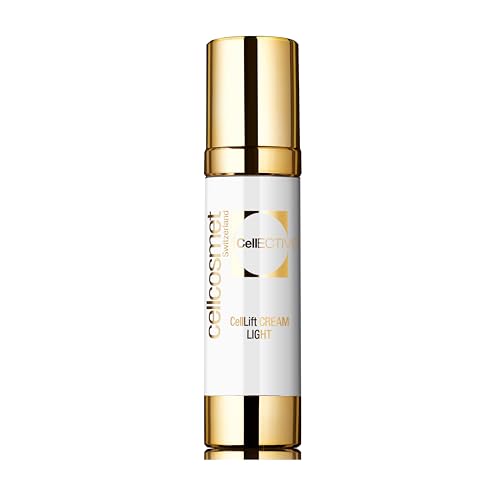Peptides and Vitamin C are two very popular ingredients appearing in skin care products. How effective are they when combined? Are they best used separately or in the same product?
Can you use peptides and Vitamin C together? You shouldn’t use peptides and Vitamin C together. Separately they can both do wonders for your skin, but together their effectiveness is minimized.
Vitamin C is used to give your skin a radiant glow due to its antioxidant properties, while peptides help increase the production of collagen and combat the damages to your skin.
Read on to learn more about the benefits of peptides and vitamin C, as well as why it isn’t best to use them together.
Also, for an excellent serum to regenerate your skin, take a look at our top pick, the Tracie Martyn Multi-Correction Serum:
Click here to see it on Amazon.
Can You Use Vitamin C and Peptides Together?
Luckily today, finding a high dose of vitamin C and peptides aren’t as difficult as it used to be. There are many products that contain these ingredients. They both have properties that will benefit you regardless if you have sensitive or oily skin. They are a common favorite for beauty influencers everywhere.
Vitamin C

Vitamin C, retinol, and hyaluronic acid are beauty care staples. They can bring out the best in any skin type, but what you use them with will determine how effective they are. To maximize the most out of your skincare products, here’s why it is best not to use Vitamin C with peptides in the same routine.
In general, vitamin C works well with ferulic acid, vitamin E, and most sunscreens. If it’s your first time using vitamin C on your skin, you should still proceed with caution.
Since most serums and creams have high doses of vitamin C, they should be introduced to your skin gradually. You can start including it in your daytime skincare routine once or twice a week and stop if you experience any adverse reactions.
Always start with a bare face when applying vitamin C serums. Remember to always apply a generous amount of sunscreen before stepping outside, or else the anti-aging qualities of your serum would disappear and make you even more vulnerable to UV damage.
If you plan to use vitamin C serums with collagen-encouraging copper-based peptides, you should think twice because they cancel each other out. The copper mixed with the peptide oxidizes the ascorbic acid in vitamin C, which breaks it down rapidly, leaving no time to work on your skin.
Though both products work wonders on your skin, it’s best to use them separately. I recommend using a vitamin C serum during the day and a copper peptide cream as a part of your nighttime regimen.
Two vitamin C serums that I have had great success with are as follows:
The Tracie Martyn Firming Serum is packed with potent, beneficial ingredients, including Vitamin C, Resveratrol, and Superoxide Dismutase. It helps lift, moisturize, contour, and regenerate your skin.
Click here to see it on Amazon.
This serum has been a part of my daily routine for years and makes a big difference in removing wrinkles, lifting, contouring, and brightening.
Another vitamin serum I adore is the iS CLINICAL Pro-Heal Serum Advance.
Click here to see it on Amazon.
This serum has a unique and powerful combination of L-ascorbic acid (vitamin C), vitamin E, Vitamin A, and olive leaf extract. Use it to reduce inflammation as well as rosacea, acne, and dermatitis.
The below video is a great review on the iS CLINICAL Pro-Heal Serum, including the ingredients and overall benefits:
Peptides
Peptides, on the other hand, are subtler and normally work well with most skincare products. They increase collagen production, especially for matured skin or damaged skin. Peptides also have a muscle relaxant property that prevents facial wrinkles.
For those that have sensitive skin, peptides can be your best friend. They are almost always a great match for prescribed sensitive skincare products and are non-irritating and non-inflammatory.
If you plan to use peeling products such as AHA-acids, make sure to do it before applying any peptides to your skin.
Peptides take a longer time to work, which is why using them at night is the best way to go. Despite how long it takes to work its magic, you can see visible results in as short as 6-12 weeks, depending on the amount of damage on your skin.
Remember, though, that peptides need upkeep. So once you stop using them, it will be noticeable on your skin.
The Cellcosmet CellEctive Cell Lift Face Cream is one of my favorite peptides product:
Click here to see it on Amazon.
This advanced, luxurious, and super-hydrating moisturizer is formulated with phytoestrogen technology, along with proteins, peptides, and nourishing ingredients. It reverses signs of hormonal aging and greatly improves the skin’s elasticity.
Why Use Vitamin C and Peptides?
Whether you have rough skin, fine lines, uneven skin tone, acne scars, or generally dull skin, Vitamin C and peptides can greatly improve your skin. Can you use peptides and Vitamin C together? As mentioned earlier, I recommend using both peptides and vitamin C separately as they are more effective by themselves.

Why Use Vitamin C?
Vitamin C (especially in high doses) is a potent antioxidant that helps your skin’s natural regeneration process. By helping repair damaged skin, Vitamin C is sure to give you fairer and glowing skin.
When you consume antioxidant-rich foods, it helps your body holistically – it’s the same for topical creams and serums. Vitamin C helps your skin offset daily aggressors like air pollution damage and UV damage.
It doesn’t just help keep you looking young by preventing premature skin aging. It also neutralizes free radicals that lessen the damage of cancerous UV exposure. If you think that vitamin C is only useful as an anti-oxidant, then you are wrong. It has more to offer.
When you apply vitamin C to your skin, it signals your skin to heal itself and helps accelerate the production of collagen and elastin.
Collagen and elastin are naturally occurring protein fibers that keep your skin plump and firm. Skin discoloration, such as dark spots, is also manageable with vitamin C since it inhibits melanin production.
Why Use Peptides?
For beauty buffs, peptides are an anti-aging must-have since it works wonders in repairing, hydrating, and smoothing your skin.
Peptides are chains of amino acids which are used to form proteins in your body. Without proteins like peptides, then we would all have wrinkled skin, dry hair, and brittle nails. These proteins are the building blocks of new collagen and elastin fibers that add firmness and elasticity to your skin.
Short chains of amino acids penetrate the top layer of your skin, and they signal your cells to function and produce collagen. Collagen, on the other hand, is what gives your skin suppleness and thickness.
You might be wondering why you need to put peptides on your skin topically, despite being naturally produced by your body? Our metabolism slows down as we age, and it takes a while for hormones and proteins to be made and released.
When you are around 30 years old, your body starts to lose roughly 1% of the remaining collagen per year, and your body has a tough time replacing it. Adding peptides can help keep your skin strong and youthful-looking. This is why peptides are commonly added to anti-aging products.
Sunlight, your age, and your environment gravely deplete your collagen production. Using peptides as a part of your regular skincare routine would work perfectly in combating the signs of early aging, such as wrinkles and dark spots.
Conclusion – Can You Use Peptides and Vitamin C Together?
Vanity is not the only reason why we take care of our skin; it affects our health as well. Religiously abiding by your skincare regimen is one way for you to take care of your skin and prevent any damage from outside factors.
Can you use peptides and Vitamin C together? Vitamin C and peptides should be part of your beauty regimens since they both have anti-aging properties that help your skin combat the daily damage it is exposed to. However, their effects aren’t as strong if they are used together.
That is why, to fully enjoy the beauty benefits of each product, you should use vitamin C as a part of your daytime routine and peptides at night. By doing so, you are allowing both products time to work on your skin without the risks of irritation or oxidation.
During your daytime beauty routine, make sure to apply an ample amount of sunscreen at least 20 to 30 minutes before going outside. This allows the products you use to settle onto your skin and work their magic throughout the day without being damaged by the sun’s harsh rays.
Peptides naturally work well with most skincare products, but it would be best to use them at night. This also allows its active ingredients to stay on your skin for a longer period of time.
Naturally, developing your own skincare regimen should be taken seriously. Each product has its own characteristics that may or may not work well with other products.
Different products work for different people as we all have different types of skin. Don’t assume that just because a product works well on a friend, it will work on you too.








